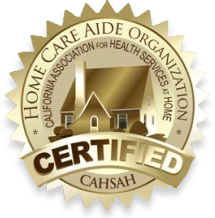March is National Caffeine Awareness Month. Caffeine can be found in many sources, but the two most likely sources for most Americans are coffee and soda. If your loved one drinks a lot of either, companion care at home can help monitor his intake. The caffeine he’s consuming could have detrimental side effects that can lead to health issues.
In general, a couple of cups of coffee a day or a couple of cans of caffeinated soda do not harm a person but each person has a different tolerance level and as a person ages, that tolerance level may reduce. So, while your elderly loved one easily drank six cups of coffee while working full-time and raising three kids, he might find that as he’s gotten older, his body no longer processes it the same as it did before.
Here are some key symptoms your loved one may be experiencing if he’s having too much caffeine each day.
Headaches
Caffeine can be addicting and those who drink a lot of it, can find on the days that they cannot get their “normal” amount, they are bothered by a throbbing headache until they can get some caffeine in their system. If your loved one refuses to speak to you or his companion care at home provider before he has his first cup of coffee (or his second) in the morning, his body may be relying too much on caffeine to get through the day.
Stomach or Digestive Issues
Too much caffeine can irritate the stomach linings of your elderly loved one, especially if he has ulcers or gastritis because it produces additional stomach acid and stimulates gastric acid production. If taken with certain medications, it can also overstimulate the side effects of those drugs which may lead to increased stomach irritation or upset.
Trouble Sleeping
As a person gets older, it takes the body longer to metabolize caffeine. So when he was younger, a cup of coffee enjoyed at 5 pm was probably completely out of his system by 8 pm but now his body may still be metabolizing it at 11 pm, making sleep difficult. This can lead to sleep issues which get compounded as your loved one wakes up tired and feels the need to have more caffeine to stay awake. If he has complained to you or his companion care at home team about not being able to sleep well, cutting back on his caffeine might help.
Dehydration
If your loved one is drinking caffeinated soda or coffee instead of water when he’s thirsty, he’s making his dehydration worse. A good rule of thumb is to tell your loved one to have a large glass of water with each caffeinated drink he has each day, plus a few extra later in the night to keep from getting dehydrated.
The good news, is many caffeinated drinks have non-caffeinated alternatives that taste the same. Your companion care at home provider and you can help your loved one sub out some of his caffeine for these non-caffeinated items to keep his caffeine intake at a healthy level.
If you or an aging loved one are considering hiring 24-Hour Companion Care at Home in Los Gatos, CA contact the friendly staff at Home Care Professionals today.
Call (866)-940-4855
- Daily Habits for Seniors: Encouraging a Happier Life - July 23, 2024
- Is it Too Late for Seniors to Protect Their Hearing? - July 18, 2024
- 5 Tips to Help Seniors Get Rid of Body Odor - July 10, 2024




